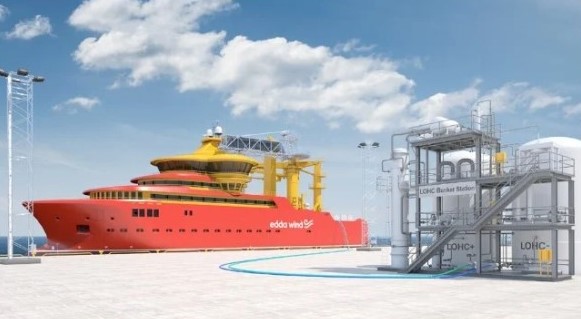Horizon Europe will fund the Ship-aH2oy project to develop and demonstrate a zero-emission propulsion technology on board ships using green hydrogen from liquid organic hydrogen carriers (LOHC) on a megawatt scale.
The European Climate Infrastructure and Environment Executive Agency (CINEA) has informed the consortium of 17 partners that they will be granted 15 million euros, with the project period being five years).
The concept is based on the combined use of LOHC and solid oxide fuel cells (SOFC) as a powertrain, which the partners say, will provide a significant improvement over conventional internal combustion engines.
Hydrogenious’ LOHC technology with the thermal oil benzyl toluene as the carrier material, already proven in stationary systems, allows for handling hydrogen in a very safe and efficient way, at ambient conditions and by utilizing existing infrastructure (transport, bunkering, etc)
a joint press release reads.
In Ship-aH2oy, Hydrogenious LOHC Technologies will oversee the detailed design of the LOHC release unit and the integration with the SOFC, while Hydrogenious LOHC Maritime will interface with the external SOFC supplier and take care of the entire system to be introduced and installed on the already prepared Edda Wind vessel.
The Ship-aH2oy partners also plan to retrofit several other vessels with LOHC/SOFC systems after the first successful demonstration of the technology. In the further course of the project period, a replication study for the developed LOHC/SOFC system will follow.
This grant demonstrates that the EU believes that LOHC is a technology that can cut emissions from offshore shipping. The EU support allows us to test this ground-breaking technology on board, and at the same time show that maritime operations for offshore wind can be carried out emission-free
said Egil Arne Skare, Chief Project Officer at Østensjø Rederi.






























































